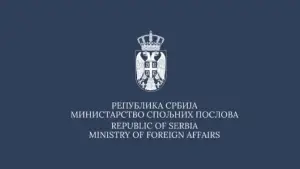- Serbia
Get to know Serbia
- Citizens
Culture and science
Health services
Pension and disability insurance
- Business
Employment
Economy
- Media
- Government
- Contact
Keep in touch
Contact form
Back
Keepin touch
Whether you have a question, comment, suggestion or any problem in the purview of the government, send us your message and we will try to respond as soon as possible. If your problem is not in our purview, we will forward your message to the relevant institution.
Q:
A:
Number of Serbian citizens’ petitions at ECHR must be reduced
Belgrade,
28 September 2012
Minister of Justice and Public Administration Nikola Selakovic met today with President of the European Court of Human Rights (ECHR) Nicolas Bratza and said that the situation in the Serbian judiciary must be improved in order to reduce the number of petitions submitted by Serbian citizens to this court.
Selakovic observed that the large number of petitions to the court in Strasbourg is a direct consequence of the problems in the Serbian judiciary.
He underlined that the Serbian judicial system is undergoing a major crisis, adding that his Ministry’s goals include the adoption of new strategies and action plans for the resolution of problems in this remit.
We must restore citizens’ confidence in the judicial system. We must increase responsibility, independence and impartiality of courts and prosecutors’ offices by strengthening the role of the High Court Council and the State Prosecutorial Council, the Minister noted.
Selakovic pointed out that the work of the Ministry must be transparent so that institutions, expert public and, most important of all, the citizens of Serbia would be familiar with its work.
The Minister said that prosecutors will have to undergo preparation for conducting investigations, and added that it is necessary to harmonise the Law on criminal procedure with the Constitution, announcing that he will soon visit the European Court of Human Rights.
Bratz said that there are more than 9,000 petitions submitted to the European Court of Human Rights by citizens of Serbia, which places Serbia as one of the 47 member states of the Council of Europe at the sixth place by the number of petitions.
He noted that the majority of petitions deal with the problems related to debts of socially-owned companies and war repatriations.
Bratz said that the training of judges and prosecutors, as well as sending a certain number of young judges and prosecutors to the European Court of Human Rights, can certainly contribute to improving the situation in the Serbian judiciary.
He underlined that the Serbian judicial system is undergoing a major crisis, adding that his Ministry’s goals include the adoption of new strategies and action plans for the resolution of problems in this remit.
We must restore citizens’ confidence in the judicial system. We must increase responsibility, independence and impartiality of courts and prosecutors’ offices by strengthening the role of the High Court Council and the State Prosecutorial Council, the Minister noted.
Selakovic pointed out that the work of the Ministry must be transparent so that institutions, expert public and, most important of all, the citizens of Serbia would be familiar with its work.
The Minister said that prosecutors will have to undergo preparation for conducting investigations, and added that it is necessary to harmonise the Law on criminal procedure with the Constitution, announcing that he will soon visit the European Court of Human Rights.
Bratz said that there are more than 9,000 petitions submitted to the European Court of Human Rights by citizens of Serbia, which places Serbia as one of the 47 member states of the Council of Europe at the sixth place by the number of petitions.
He noted that the majority of petitions deal with the problems related to debts of socially-owned companies and war repatriations.
Bratz said that the training of judges and prosecutors, as well as sending a certain number of young judges and prosecutors to the European Court of Human Rights, can certainly contribute to improving the situation in the Serbian judiciary.
-
 Belgrade, 18 August 2025
Belgrade, 18 August 2025Serbian police take part in international seizure of 4.8 tonnes of cocaine
-
 Belgrade, 17 August 2025
Belgrade, 17 August 2025Those responsible for incidents in Valjevo must be found, punished
-
 Кladovo, 12 August 2025
Кladovo, 12 August 2025181 fires recorded in Serbia in last 24 hours
-
 Tršić, 11 August 2025
Tršić, 11 August 2025Students of supplementary Serbian language schools in Tršić again this year
-
 Belgrade, 2 August 2025
Belgrade, 2 August 2025Serbia firmly committed to preserving regional peace and cooperation
-
 Belgrade, 28 July 2025
Belgrade, 28 July 2025Serbian citizens advised not to travel to Croatia from 1 to 10 August
-
 Belgrade, 28 July 2025
Belgrade, 28 July 2025Bluetongue disease confirmed on two farms near Bosilegrad
-
 Belgrade, 24 July 2025
Belgrade, 24 July 2025Good cooperation, exceptional bilateral relations between Serbia, France
-
 Belgrade, 23 July 2025
Belgrade, 23 July 2025Arrest of Popović continuation of political persecution of Serbs in Kosovo and Metohija



